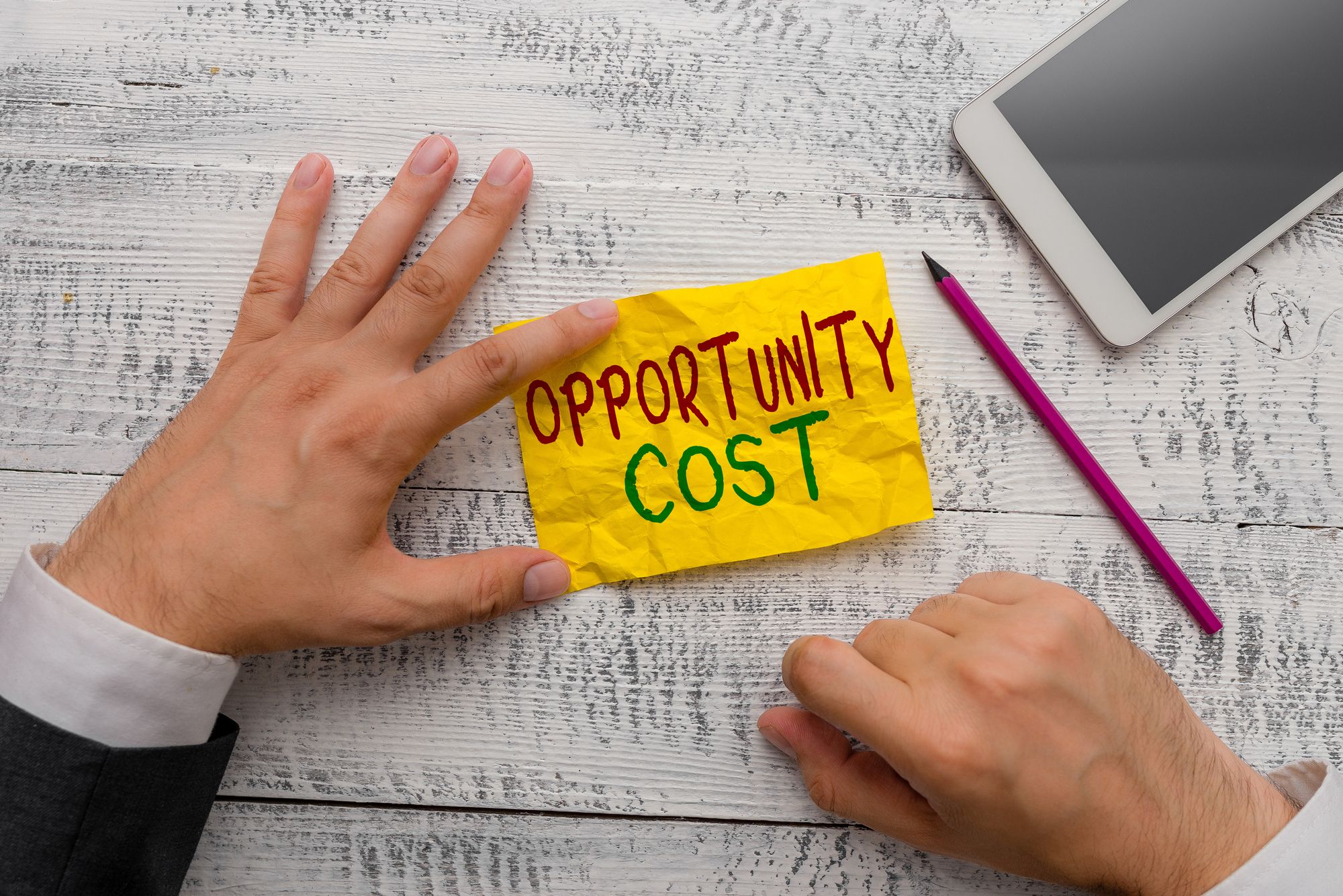Okay, I can hear you loud and clear – How can losing money be a good thing?
You’re probably thinking I’ve lost my marbles with that topic heading because let’s face it, losing money is for losers. Right?
Wrong!
A loser is somebody who hangs on to a loss-making investment because they can’t bear to admit they’ve made a mistake or they refuse to acknowledge the market has flipped and their property’s value is going backwards.
They’d rather sit tight and watch their future financial freedom slipping away than have the market confirm they bought a dud.
In this post I want to walk you through a few scenarios where selling at a loss could be the catalyst for getting your money to work so much harder than it does now, putting you on track for future profits, better cashflow and ultimately, financial freedom.
We know it’s supposed to be a good idea to invest in property but in many instances we may not know or really understand what reason we’re buying for.
Are we looking for capital growth or cashflow? Are we looking for lifestyle or to manufacture profit?
And if we do know why we’re investing, we don’t always do the homework.
Maybe we’re after capital growth but we haven’t bothered to work out if our chosen property is located in a good capital growth area. Likewise with cashflow. We may not have done the research on rental returns, tenant demand and turnover.
So what happens when we’re buying blind? A few years down the track we discover our investment property has become a money pit. The value has plateaued or dipped and the rental return is abysmal.
We’re human: we all make mistakes, especially on our first few outings as an investor.
The bigger problem surfaces when we don’t rectify those mistakes. We don’t go back and revisit that investment and ask ourselves: “Should I be getting out of this because it’s not serving me well?”
 I spend a lot of time with PDF Students in their Kick-Off Sessions analysing property assets and when I find an investment that’s performing poorly I have to ask why it’s still in play. If an asset is a dud, you really need to give serious thought to getting rid of it.
I spend a lot of time with PDF Students in their Kick-Off Sessions analysing property assets and when I find an investment that’s performing poorly I have to ask why it’s still in play. If an asset is a dud, you really need to give serious thought to getting rid of it.
If it’s not giving you capital gain and there’s no cashflow, why do you still own this property? Your money is just going backwards.
Yes, there will be transaction costs to sell it. You’ll have to pay an Agent, pay for marketing fees, maybe pay tax. But you need to weigh up these transaction costs against the opportunity cost.
Where else could your money be invested and how much money could it be making?
Sometimes it’s better to lose a finger than lose your entire arm.
There’s no getting around it, realising a loss is disheartening. Anyone with intentions to make money from property investment is going to feel like a goose if they sell for a loss or for minimal gain.
But holding on to a dud is not only a financial drain, it can also be an emotional drain.
I had a student who did a development project and lost $200,000. He was extremely worried that his family would suffer so he worked super hard to rebuild that loss. Even when he had progressed to the point of financial freedom he was still beating himself up because he was so stuck on the loss. We had to prove to him that the roadblock was no longer there so he could remove that mental handbrake and look towards his future.
Think about people who have bought into mining towns where growth has all but disappeared: their money is going backwards yet they’re holding on in desperation.
Instead of sticking your head in the sand, it’s best to do the numbers: what are my future finances likely to look like if I hold? What will my loss be if I decide to sell? Where could I invest the money I free up if I sell? How much could that new investment potentially make?
Instead of clinging to a sinking ship, talk to your Accountant about your best exit strategy.
- is there a way to time the sale to offset a capital gain?
- is there another tax advantage to make the loss worthwhile?
- can I renovate the property to a higher standard to secure a better sale price?
- can I split the house in two to create a dual-occupancy, increase my rental return and maximise my sale price?
You’ve probably heard that many of the world’s richest folk have gone broke or declared bankruptcy including pioneer of the American animation industry Walt Disney, former boxer George Foreman, and legendary singers Cyndi Lauper and Elton John.
 But they didn’t let a financial setback put a stop to their stellar careers. They rebounded from those losses and went on to bigger and better things.
But they didn’t let a financial setback put a stop to their stellar careers. They rebounded from those losses and went on to bigger and better things.
I’ve seen lots of instances where people have made bad decisions five, ten or fifteen years ago, and even though hanging on is causing mental anguish, affecting their serviceability and limiting their cashflow, they just can’t let go.
Yet these dud properties are like a weight around your neck, dragging you down.
My advice is to take a very deliberate approach to your property and development strategy. You have to constantly test and measure your portfolio and see if it’s delivering the expected returns.
If it’s not, you need to seriously consider repurposing that asset or those funds.
When you let go of a dud property, you might lose money.
But you’ll also lose the shackles that have been holding you back.
Sometimes you have to take a step back to go forward.
You’re probably thinking I’ve lost my marbles with that topic heading because let’s face it, losing money is for losers. Right?
Wrong!
A loser is somebody who hangs on to a loss-making investment because they can’t bear to admit they’ve made a mistake or they refuse to acknowledge the market has flipped and their property’s value is going backwards.
They’d rather sit tight and watch their future financial freedom slipping away than have the market confirm they bought a dud.
In this post I want to walk you through a few scenarios where selling at a loss could be the catalyst for getting your money to work so much harder than it does now, putting you on track for future profits, better cashflow and ultimately, financial freedom.
We know it’s supposed to be a good idea to invest in property but in many instances we may not know or really understand what reason we’re buying for.
Are we looking for capital growth or cashflow? Are we looking for lifestyle or to manufacture profit?
And if we do know why we’re investing, we don’t always do the homework.
Maybe we’re after capital growth but we haven’t bothered to work out if our chosen property is located in a good capital growth area. Likewise with cashflow. We may not have done the research on rental returns, tenant demand and turnover.
So what happens when we’re buying blind? A few years down the track we discover our investment property has become a money pit. The value has plateaued or dipped and the rental return is abysmal.
We’re human: we all make mistakes, especially on our first few outings as an investor.
The bigger problem surfaces when we don’t rectify those mistakes. We don’t go back and revisit that investment and ask ourselves: “Should I be getting out of this because it’s not serving me well?”
If it’s not giving you capital gain and there’s no cashflow, why do you still own this property? Your money is just going backwards.
Yes, there will be transaction costs to sell it. You’ll have to pay an Agent, pay for marketing fees, maybe pay tax. But you need to weigh up these transaction costs against the opportunity cost.
Where else could your money be invested and how much money could it be making?
Sometimes it’s better to lose a finger than lose your entire arm.
There’s no getting around it, realising a loss is disheartening. Anyone with intentions to make money from property investment is going to feel like a goose if they sell for a loss or for minimal gain.
But holding on to a dud is not only a financial drain, it can also be an emotional drain.
I had a student who did a development project and lost $200,000. He was extremely worried that his family would suffer so he worked super hard to rebuild that loss. Even when he had progressed to the point of financial freedom he was still beating himself up because he was so stuck on the loss. We had to prove to him that the roadblock was no longer there so he could remove that mental handbrake and look towards his future.
Think about people who have bought into mining towns where growth has all but disappeared: their money is going backwards yet they’re holding on in desperation.
Instead of sticking your head in the sand, it’s best to do the numbers: what are my future finances likely to look like if I hold? What will my loss be if I decide to sell? Where could I invest the money I free up if I sell? How much could that new investment potentially make?
Instead of clinging to a sinking ship, talk to your Accountant about your best exit strategy.
- is there a way to time the sale to offset a capital gain?
- is there another tax advantage to make the loss worthwhile?
- can I renovate the property to a higher standard to secure a better sale price?
- can I split the house in two to create a dual-occupancy, increase my rental return and maximise my sale price?
You’ve probably heard that many of the world’s richest folk have gone broke or declared bankruptcy including pioneer of the American animation industry Walt Disney, former boxer George Foreman, and legendary singers Cyndi Lauper and Elton John.
I’ve seen lots of instances where people have made bad decisions five, ten or fifteen years ago, and even though hanging on is causing mental anguish, affecting their serviceability and limiting their cashflow, they just can’t let go.
Yet these dud properties are like a weight around your neck, dragging you down.
My advice is to take a very deliberate approach to your property and development strategy. You have to constantly test and measure your portfolio and see if it’s delivering the expected returns.
If it’s not, you need to seriously consider repurposing that asset or those funds.
When you let go of a dud property, you might lose money.
But you’ll also lose the shackles that have been holding you back.
Sometimes you have to take a step back to go forward.
